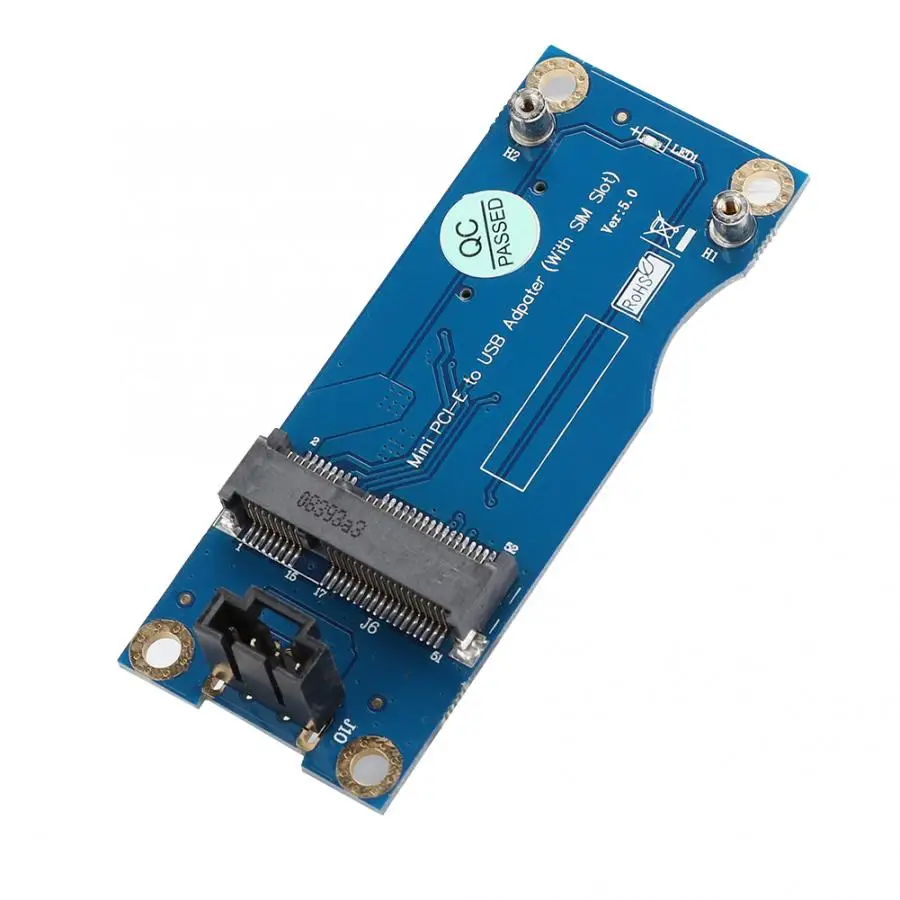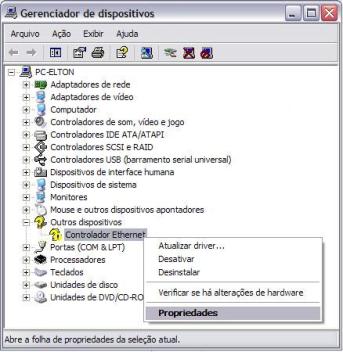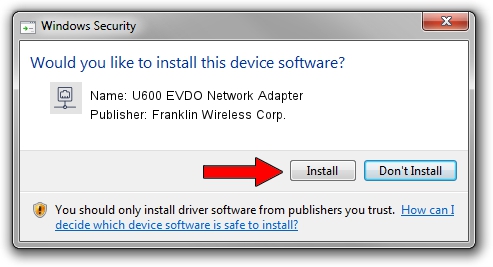OTI currently hosts and manages serveral non-profit social enterprises namely, thimame.com, JobsToDo, Eurojobs, OTI Community Support (OCS) and OTI Education The organisation was born in 2009 in London, UK and in 2011 in Cyprus and now its network has spread out to more than 14 countries including but not limited to Greece, Italy, Hungary. Compaq CQ10-400 Mini PC Series (Win 7) Network card driver. Download the Network card driver for your Compaq CQ10-400 Mini PC Series. License: Free OS: Windows 7. The OT7300 links two USB hosts to exchange data through mass storage class driver or RNDIS (Remote Network Driver Interface Spec) Both USB sides support USB mass storage mode that allows the host system automatically launching the custom application which stored in external flash memory.

OSHA Training Institute (OTI) Education Centers Program
Frequently Asked Questions
The OSHA Training Institute (OTI) Education Centers Program was initiated as an extension of the OSHA Training Institute, which is the division within the Occupational Safety and Health Organization (OSHA) that serves as the primary training provider for OSHA. OTI targets Federal and State compliance officers and State consultation program staff, but also provides training for Federal personnel from agencies other than OSHA and private sector personnel on a space available basis. During the 1980s, the number of requests for training from private sector personnel and Federal personnel from agencies other than OSHA increased substantially and the demand eventually exceeded the capacity of OTI. The OTI Education Centers were formed as a national network of non-profit organizations authorized by OSHA to deliver occupational safety and health training to public and private sector workers, supervisors, and employers on behalf of OSHA. They also act as Authorizing Training Organizations (ATO) in administering the Outreach Training Program. OTI Education Centers provide OSHA training not only at their location, but at their host training organizations throughout their respective OSHA Region. The OTI Education Centers have the ability to deliver OSHA training for companies at their worksite on a contract basis. For additional information on the OTI Education Centers Program please see http://www.osha.gov/dte/edcenters/background.html.
No, authorized OTI Education Centers use their own instructors and facilities and support their OSHA-numbered courses through their organization's normal tuition and fee structure.
Occupational safety and health courses are offered at OSHA Training Institute (OTI) Education Centers nationwide. The OTI Education Centers are a national network of non-profit organizations authorized by OSHA to deliver occupational safety and health training to public and private sector workers, supervisors, and employers on behalf of OSHA. There is currently at least one OTI Education Center in each OSHA Region throughout the United States and its territories. OSHA courses are not offered in locations outside of OSHA's geographic jurisdiction. A list of OTI Education Centers and their locations can be found at http://www.osha.gov/dte/edcenters/index.html.

The OTI Education Centers are a national network of training sites. There is at least one Education Center located in each OSHA Region. OTI Education Center locations can be found at http://www.osha.gov/dte/edcenters/index.html
Yes, the OTI Education Centers offer added-value through their ability to provide customized corporate training solutions and accommodate requests for on-site training courses.
No, OSHA does not have an international training program. OSHA does not offer OSHA Training Institute (OTI) Education Center courses outside of its geographic jurisdiction. The Occupational Safety and Health Administration (OSHA) is a federal regulatory agency within the United States. The Agency only covers employers and employees in the 50 United States and certain territories and jurisdictions under federal authority. OSHA resources and training programs such as the OSHA Training Institute (OTI) Education Centers program and the Outreach Training Program are intended for workers covered under the Occupational Safety and Health (OSH) Act of 1970, and within the Agency's geographic jurisdiction.
The Occupational Safety and Health Administration (OSHA) geographic jurisdiction includes the 50 United States, the District of Columbia, Puerto Rico, the Virgin Islands, American Samoa, Guam, the Commonwealth of the Northern Mariana Islands, Wake Island, Johnston Island, and the Outer Continental Shelf Lands as defined in the Outer Continental Shelf Lands Act.
OTI Education Centers are selected through a national competitive process, which is announced through a Federal Register Notice of Competition. To be eligible to apply for consideration as an OTI Education Center, organizations must be a non-profit organization with demonstrated experience in developing curriculum, delivering occupational safety and health training, and have appropriate training facilities. Authorized OTI Education Centers are selected for a period of five years. The last competition closed in June 2017. Selections were announced in September 2017. For information on the FY 2017 OTI Education Center Notice of Competition and Request for Applications refer to https://www.gpo.gov/fdsys/pkg/FR-2017-05-01/pdf/2017-08686.pdf.
OSHA courses currently available through the OTI Education Centers include the Outreach Training Program trainer courses and occupational safety and health standards courses for construction, general industry, and maritime. The Outreach Training Program courses support the OSHA Outreach Training Program, which is the agency's primary method to train workers in the basics of occupational safety and health. The occupational safety and health standards courses cover OSHA policies, procedures, and safety and health principles. The standards courses are appropriate for anyone interested in the field of occupational safety and health.
Other OTI Education Center course offerings address such topics as hazardous materials, machine guarding, ergonomics, confined space, excavation, electrical hazards, and fall protection. OTI Education Center courses also offer industry-specific courses that align with OSHA National Emphasis Programs (NEP), such as the oil and gas industry, nursing homes, and crane hazards. There are currently a number of one-day seminars in subject areas such as safety and health management, recordkeeping, health care ergonomic guidelines, accident investigation, and emergency evacuation. These courses were added to meet the needs of students who are unable to attend the full-week courses, but would like to benefit from the training curriculum. A complete listing of courses and a searchable schedule can be found at http://www.osha.gov/dte/edcenters/course_description.html.
Course descriptions and prerequisite requirements for courses offered through authorized OTI Education Centers are located at http://www.osha.gov/dte/edcenters/course_description.html.
Yes, the OTI Education Centers offer industry-specific courses in the area of construction, general industry, and maritime including OSHA standards courses. Some specific topics for construction include the OSHA #3015 Excavation, Trenching, and Soil Mechanics, the OSHA #7400 Noise in the Construction Industry, and the OSHA #7405 Fall Hazard Awareness for the Construction Industry. Some specific topics for general industry include the OSHA #2045 Machinery and Machine Guarding Standards, the OSHA #7005 Public Warehousing and Storage, and the OSHA #7105 Introduction to Evacuation and Emergency Planning. The OTI Education Centers also have a course for the oil and gas industry, OSHA #5810 Hazards Recognition and Standards for On-Shore Oil and Gas Exploration and Production, courses for the healthcare industry, OSHA #7000 OSHA Training Guidelines for Safe Patient Handling and OSHA #7200 Bloodborne Pathogens Exposure Control for Healthcare Facilities, and small businesses, OSHA #7510 Introduction to OSHA for Small Businesses. For additional information on OTI Education Center locations, course descriptions, and a searchable course schedule refer to the OSHA Web site at http://www.osha.gov/dte/edcenters/index.html.
A searchable course schedule including course dates, location, and fees is available at http://www.osha.gov/dte/ecd/course_otiec_search_public.html.
The OSHA #510 Occupational Safety and Health Standards for Construction course and the 30-hour construction industry Outreach training class are not equivalent courses. The OSHA #510 course is based on OSHA construction standards while the 30-hour construction industry Outreach training class focuses on workers' rights, employer responsibilities, how to file a complaint, as well as how to identify, abate, avoid and prevent job-related hazards in the construction industry.
The OSHA #510 Occupational Safety and Health Standards for Construction course is offered through authorized OSHA Training Institute (OTI) Education Centers. The OSHA #510 covers OSHA standards, policies, and procedures in the construction industry, as well as construction safety and health principles. Topics include scope and application of the OSHA construction standards. Special emphasis is placed on those areas that are the most hazardous, using OSHA standards as a guide. Students that successfully complete the course receive a course completion certificate.
Wireless Network Card For Sale
The 30-hour construction industry Outreach training class is taught by OSHA authorized construction industry Outreach trainers and is intended to provide a variety of training to workers with some safety responsibility. Outreach training emphasizes construction hazard identification, avoidance, control, and prevention, not OSHA standards. Students that successfully complete this training will receive a 30-hour construction industry Outreach training class completion card.
The OSHA #511 Occupational Safety and Health Standards for General Industry course and the 30-hour general industry Outreach training class are not equivalent courses. The OSHA #511 covers OSHA standards, policies, and procedures in general industry and the 30-hour general industry Outreach training class focuses on workers' rights, employer responsibilities, how to file a complaint, as well as how to identify, abate, avoid and prevent job-related hazards in general industry.
Mobile device manufacturers that are working with the standard include Apple, Asus, Google, HTC, Huawei, LG Electronics, Motorola Mobility, Nokia, Samsung, BlackBerry, Xiaomi, and Sony. First released in 2008, the Qi standard had by 2019 been incorporated into more than 160 smartphones, tablets and other devices. Qlogic technologies Top Mobile App Development Company We turn ideas into great digital products. We love to solve business challenges by building web apps, mobile apps and enterprise-level solutions. 
The OSHA #511 Occupational Safety and Health Standards for General Industry course is offered through authorized OSHA Training Institute Education Centers. The OSHA #511 covers OSHA standards, policies, and procedures in general industry with special emphasis on those areas in general industry which are most hazardous. Students that successfully complete the course receive a course completion certificate.
The 30-hour general industry Outreach training class is taught by OSHA authorized general industry Outreach trainers and is intended to provide a variety of training to workers with some safety responsibility. Outreach training should emphasize general industry hazard identification, avoidance, control and prevention, not OSHA standards. Students that successfully complete this training will receive a 30-hour general industry Outreach training class completion card.
One-hundred percent (100%) attendance is required at all OTI Education Center courses. Course participants must attend all training sessions to be awarded a course completion certificate.

No, OTI Education Center courses are not offered online.
The OSHA Training Institute (OTI) Education Centers offer courses in a wide range of occupational safety and health topics in construction, general industry, and maritime. An appropriate initial course for those wanting to work as a safety professional is an occupational safety and health standards course in either construction, general industry, or maritime. These courses are the OSHA #510 Occupational Safety and Health Standards for the Construction Industry, the OSHA #511 Occupational Safety and Health Standards for General Industry, and the OSHA #5410 Occupational Safety and Health Standards for the Maritime Industry. Theseare standards-based courses that cover OSHA policies, procedures, and safety and health principles. For a complete list of courses, certificate and degree programs, OTI Education Center locations, course descriptions, and other information refer to the OSHA Web site at http://www.osha.gov/dte/edcenters/index.html.
No, the OSHA courses offered through the OSHA Training Institute (OTI) Education Centers will not qualify a student as a 'Competent Person.' The 'Competent Person' can only be selected or assigned by a person's employer. Please see the appropriate OSHA standard to determine what training, experience, and approvals are required to be a 'Competent Person.'
The parent organization for some of the OTI Education Centers offer certificate and college degree programs in occupational safety and health. A listing of the certificate and degree programs can be found at http://www.osha.gov/dte/edcenters/certificate.html#certificates.
Downnload Quanta MW1 laptop drivers or install DriverPack Solution software for driver update. Download Download DriverPack Online. Motorola SM56 Data Fax Modem. Drivers quanta modems. Download QCT products driver, manual, firmware and update. And products Portfolios, case study, white paper and CCLs.,QCT (Quanta Cloud Technology).
OSHA recently introduced the Public Sector Safety and Health Fundamentals Certificate Program to support OSHA’s mission by training public sector employees in occupational safety and health. Participants have the opportunity to earn certificates in construction and general industry. For more information on this certificate program refer to https://www.osha.gov/dte/public_sector/index.html. Drivers simonsvoss port devices.
Some OTI Education Center courses may be eligible for college credit. College credits for OSHA-numbered courses are offered under the authority of the authorized OTI Education Center with agreement from the parent organization. The OTI Education Center where you intend to complete the course can provide additional information on college credit.
The Continuing Education Unit (CEU) is a nationally recognized unit of measurement for post-secondary education, professional development, and career training. Most of the OTI Education Centers provide CEUs for their OSHA-numbered courses. A list of the OTI Education Centers that offer CEUs can be found on the searchable schedule located at http://www.osha.gov/dte/ecd/course_otiec_search_public.html.
The American Board of Industrial Hygiene (ABIH) and the Board of Certified Safety Professionals (BCSP) have approved several OTI Education Center courses for continuing certification points for their respective professional certifications. ABIH has approved Certification Maintenance (CM) points for Certified Industrial Hygienists (CIH). BCSP has approved OTI Education Center courses for Continuance of Certification (COC) points for Certified Safety Professionals (CSP). BCSP has also approved CM points for Occupational Health and Safety Technicians (OSHT) and Construction Health and Safety Technicians (CHST). Contact your certifying body for instructions on documenting continuing certification points.

OSHA authorizes Outreach trainers to conduct occupational safety and health awareness training through the OSHA Outreach Training Program. Individuals who meet the course prerequisites and a complete a one-week OSHA trainer course receive a certificate of completion and an authorized Outreach trainer card. Outreach trainer courses are based on one of the following subject areas: disaster site workers (second responders), construction, general industry, or maritime. Upon successful completion of the trainer course, Outreach trainers are authorized to teach classes based on the trainer course subject area. These include a 15-hour course for disaster site workers (second responders), as well as 10- and 30-hour Outreach training classes in construction, general industry, or maritime safety and health hazards. Authorized Outreach trainers are responsible for distributing OSHA class completion cards to trainees that successfully complete the class. The OSHA Outreach Training Program is a voluntary program. The training courses do not meet the training requirements for any OSHA standards. However, some states have enacted laws mandating the training. Some employers, unions, organizations or other jurisdictions may also require this training.
To become an authorized OSHA Outreach trainer, you must complete a required OSHA trainer course and complete/meet the necessary prerequisite requirements:

- For Construction Industry: 1. Completion of OSHA #510 Occupational Safety and Health Standards for the Construction Industry and 2. Five years of construction safety experience (a college degree in occupational safety and health, a Certified Safety Professional (CSP), or Certified Industrial Hygienist (CIH) designation, in the applicable training area may be substituted for two years of experience) and 3. Completion of OSHA #500 Trainer Course in Occupational Safety and Health Standards for Construction.
- For General Industry: 1. Completion of OSHA #511 Occupational Safety and Health Standards for General Industry and 2. Five years of general industry safety experience (a college degree in occupational safety and health, a Certified Safety Professional (CSP), or Certified Industrial Hygienist (CIH) designation, in the applicable training area may be substituted for two years of experience) and 3. Completion of OSHA #501 Trainer Course in OSHA Standards for General Industry.
- For Maritime Industry: 1. Three years of maritime industry experience and 2. At least one of the following: Two years of occupational safety and health experience (with a broad focus) in any industry; a degree in occupational safety and health from an accredited college or university; Certified Safety Professional (CSP) designation; Certified Industrial Hygienist (CIH); designation; Certified Marine Chemist (CMC) designation; or Certified Safety Health Manager (CSHM) designation and 3. Completion of OSHA #5400 Trainer Course in OSHA Standards for the Maritime Industry.
- For Disaster Site Workers: 1. Completion of OSHA #500 Trainer Course in OSHA Standards for the Construction Industry or OSHA #501 Trainer Course in OSHA Standards for General Industry and 2. Three years safety training experience and 3. Completion of the 40-hour HAZWOPER training and 4. Completion of OSHA #5600 Disaster Site Worker Train-the-Trainer Course.
The OSHA-numbered courses listed above are only offered by authorized OSHA Training Institute (OTI) Education Centers which are located throughout the United States. For a complete list of OTI Education Centers and their courses visit the OSHA Web site at http://www.osha.gov/dte/edcenters/index.html.
Yes, the OSHA Outreach training authorization is valid throughout the United States.
OSHA Training Institute (OTI) Education Centers act as Authorizing Training Organizations (ATO) in administering the Outreach Training Program. ATOs are authorized by OSHA to offer the OSHA Outreach Training Program trainer and update courses. ATOs are the primary point of contact for Outreach trainers. The ATOs are responsible for distributing 10- and 30-hour Outreach training class completion cards to Outreach trainers, monitoring Outreach trainers by conducting records audits and training observations, and maintaining records pertinent to the Outreach Training Program as outlined in their non-financial agreement with OSHA.
OSHA Training Institute (OTI) Education Centers do not receive funding from OSHA. These organizations support their training programs and Outreach Training Program administrative activities through tuition and fees. For this reason, as the Authorizing Training Organization for OSHA, the OTI Education Centers are authorized to charge fees for processing requests for class completion cards.
| 產品資訊/USB Mini-Host Series | > USB3.0 Host to Host Bridging Controller - OT7300 |
Drivers Oti Network & Wireless Cards Compatible
OT7300 USB3.0 Host to Host Bridging Controller |
The OT7300 is a single-chip SuperSpeed USB 3.0 Host-to-Host bridge controller specially designed for connecting two USB Host systems either between Desktop/Laptop PC, Tablet, Smartphone, or Smart TV.
The OT7300 uses “Hybrid Multi-Class” channel that allows two USB host systems to share their keyboard, mouse, network, mass storage, display, and multimedia capabilities. The OT7300 links two USB hosts to exchange data through mass storage class driver or RNDIS (Remote Network Driver Interface Spec) Both USB sides support USB mass storage mode that allows the host system automatically launching the custom application which stored in external flash memory.
The OT7300 also provides flexible endpoint assignment mechanism to easily support multi-USB class protocol. Custom applications can be easily implemented through this high performance controller.
Features
MCU
● Enhanced 1T 8032 MCU
● MCU can be operated at 30MHz and 60MHz
Communication Interfaces
● Two USB 3.0 SuperSpeed receivers
-Support 5Gbps/480Mbps/12Mbps
-Support up to 16 endpoints
-Support Control/Interrupt/Bulk/Isochronous endpoint
● One eMMC reader I/F
● One Full-duplex UART ports
● One Four-wire SPI module in Master mode
● One I2C modules in Master or Slave mode
Input/ Output/Analog feature
● Up to 16 GPIO(General Purpose I/O)
● Two Pulse-Width Modulation (PWM) in generate mode
Drivers Oti Network & Wireless Cards Download
Timer System
● Three 16bit Timers/Counters
Clock Management
● Configurable PLLs
● Independent Watchdog timer
● 30MHz Crystal Source
Power Management
● 5V and 1.2V power supply
● 3.3V Digital I/O pad
● Built-in 5V to 3V LDO
● Embedded Power On Reset
Protocol and Driver
● USB Audio Device Class
● USB Human Interface Device Class(HID)
● USB Mass Storage Class
● RNDIS(Remote Network Driver Interface Spec)
● Self-definition
Applications
● USB KVM Switch
● USB Data Transfer Cable
● Custom USB Host to Host Application
回到上層